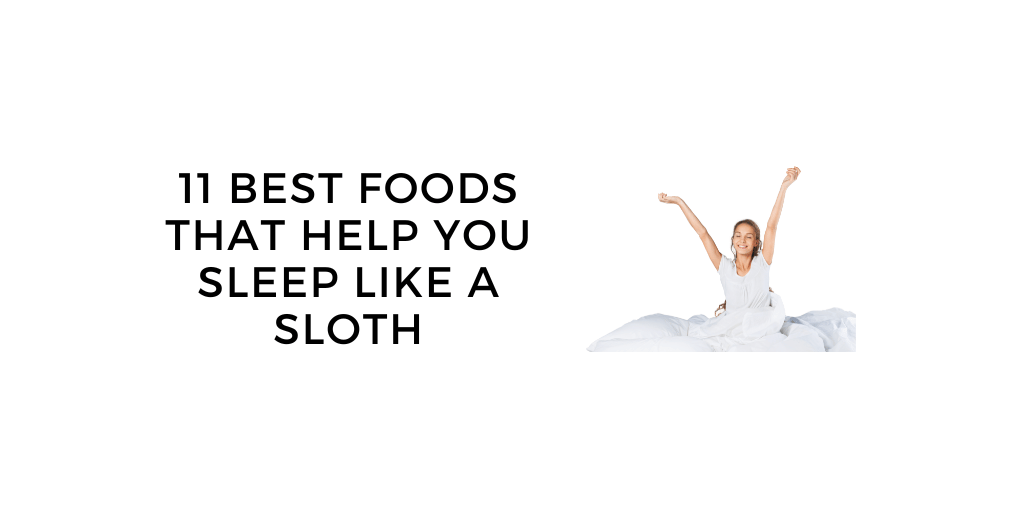
The 11 Best Foods That Help You Sleep Like a Sloth
Foods That Help You Sleep Better
Not being able to sleep is one of the most frustrating things in the world. You toss and turn for hours, trying everything from counting sheep to drinking chamomile tea, but nothing seems to work.
The reason you can't sleep might have less to do with your environment and more to do with what you're eating. Certain foods can help you sleep while others can keep you up all night.
In this article, we'll share 11 of the best foods to help you sleep like a sloth. For reference, they sleep 15-18 hours per day. You don't have to sleep that much. But we can all embrace our inner sloth when we need it.
We'll also share some tips on creating a comfortable sleep environment that you haven't heard before. I promise you that.
Want the simple answer? The best food for sleep is a mug full of bone broth. Why? It is full of the amino acid glycine, which is shown to get us into a restful sleep state. The best one is Bluebird Provisions chicken, because they have more glycine than any other option out there.
More on that below, but lets' dive in!
How Diet Effects Sleep
Diet effects sleep by providing the body with nutrients that either help or hinder your sleep.
Some things help us unwind like magnesium, tryptophan and calcium. While other things have stimulating effects, like caffeine or sugar.
Also, the amount of food we eat contributes to sleep. Large meals too close to bed will mess things up for most people.
It is important to keep in mind that individual differences in metabolism and digestion play a role in how different foods impact your sleep. There are significant sex differences in food and how much sleep we need as well.
Some experts suggest that women need 8-10 hours or sleep daily, while men can sometimes get away with a bit less: 7-8 hours. This is because our hormonal systems differ. This is beyond the scope of this article, and a discussion for another day.

11 Foods That Help You Sleep
Foods that help you sleep are bone broth, chamomile tea, bananas, walnuts, kiwis, fatty fish, turkey, sweet potatoes, honey, tart cherries and yogurt.
Let's discuss each in detail because what makes them good are fascinating.
1. Bone Broth To Increase Serotonin
Shocker right? Bone broth is known for gut health and skin benefits, but the sleep benefits are just as good, if not better.
What makes it good? A unique amino acid called glycine makes up more of the protein in bone broth than anything else.
The crazy thing is that you are probably deficient in glycine if you eat a standard 'Western diet,' that is devoid of animal skin, slow cooked meats and bone broth.
Research shows that getting 3 grams of glycine (the amount in 1 cup of Bluebird Provisions bone broth) before bed improves the quality of your sleep (1).
So, what's going on here? Why is this weird protein I've never heard of so important?
Glycine allows us to slip into deeper sleep phases (REM), which is the deep recovery phase where restorative processes happen.
It does this by lowering our core body temperature and stopping muscle activity. Once inside the body, glycine is what's called an inhibitory neurotransmitter, just like GABA (another popular sleep aid).
This is how it also helps improve mood and increase serotonin levels in the body without increasing dopamine (2). Learn more about bone broth and sleep benefits in this guide.
2. Chamomile Tea For Theanine
Chamomile tea is a classic sleep aid that you've probably heard of. It has been used for decades across many different cultures. It is known for its relaxing, calming effects.
Two ingredients in chamomile that help our unwind are theanine and terpenes. Theanine is a compound found in many sleep supplements which helps to decrease stress and improve sleep quality.
Since it is a herbal tea, there is no risk of caffeine to keep you up.
3. Kiwis
Kiwis seem to help sleep because of the serotonin, folate (vitamin B9) and antioxidants. Fun fact: the research on kiwis started in New Zealand.
Nowadays, they are enjoyed worldwide. Serotonin helps with the natural production of melatonin in our bodies. There is some evidence to show that they may help people suffering from specific sleep disorders like insomnia (3).

4. Sweet Potato
Sweet potatoes are full of potassium, magnesium and vitamin B6 to help lower blood pressure and relax your muscles and nervous system.
These minerals and vitamins work together to stimulate melatonin production, which helps you get to sleep and stay sleeping. The best part is that they are absolutely delicious and can easily be incorporated into any diet.
You can roast them, mash them or do what I do; boil them and stick into smoothies.
5. Tart Cherries With Hormone Melatonin
Tart cherries are full of melatonin, serotonin and antioxidants that work together to improve sleep quality. People who use it rave that is helps them fall asleep easier and wake up feeling more rested.
6. Honey
Honey has tryptophan, which is an amino acid found in only a few different foods that helps you fall sleep (4). You can easily mix honey into herbal tea or warm water with lemon for a soothing beverage at night.
Honey also provides some carbs to re-stock your liver and muscle glycogen as you sleep.
7. Walnuts
Walnuts contain a few compounds that make for a restorative night's rest, including melatonin, serotonin, polyphenols, potassium and magnesium. One serving of them gets you around 50 mg magnesium.
Walnuts are also a plant based source of omega-3 fats. While the conversion to EPA and DHA is low compared to fatty fish, they can help maintain healthy circadian rhythm (5).
The best part is that there are extra health benefits for eating this superfood, including a reduced risk of heart disease, dementia and they make you feel fuller than other nuts.
8. Fatty Fish
Fatty fish are full of vitamin D and omega-3 fats (EPA and DHA) which are all shown to contribute to sleep (6,7). The nutrients in salmon specifically help to increase serotonin levels while providing much needed minerals like potassium, magnesium, zinc, phosphorus and vitamin B-12.
You can learn more about the fascinating benefits of omega-3s in this article. The best sources are salmon, anchovies, mackerel and herring.
9. Bananas for Magnesium
Bananas are a good source of magnesium and potassium which help relax overstressed muscles. There is also tryptophan in bananas, which is a strong precursor to serotonin in our bodies.
10. Yogurt
Yogurt is high in GABA, which can help improve sleep quality (8). GABA is an inhibitory neurotransmitter -- meaning it helps us unwind and reduce stress while calming our minds and nervous system.
Look for a yogurt that is rich in diverse probiotics. This helps to seed your gut with beneficial bacteria for all sorts of gut healing benefits. The problem with yogurt is that 'big food' is all over it with sugar spiked versions that are not good for you.
Look for a full fat version with less than 8 g sugar per serving. If you are sensitive to dairy, there are fantastic dairy-free options made from oats, nuts or coconuts.
11. Turkey
Everyone remembers eating turkey at Thanksgiving or Christmas and noticing a family member fall asleep at the table. Some mis-informed person blames the turkey.
It turns out this not true. Sure, turkey has an amino acid that helps you sleep called tryptophan. But researchers maintain that you’d have to eat 20 servings of turkey to equal one dose of tryptophan (when it's specifically used for sleep issues).
The reason why we get sleepy at these dinners is more likely because of all the other carb rich foods we eat. Eating mashed potatoes, stuffing, desserts in quick succession leads to a massive spike in blood sugar, followed by a crash (9).
Combine that with the sedative effects of alcohol, and you have the perfect recipe for a table nap.
What are the benefits of eating these foods for sleep?
As I mentioned above, certain foods have sleep promoting enzymes, hormones, nutrients and amino acids. I would find a few of these foods that work for you and you enjoy eating.
Then try eating them if you have issues with sleep. That being said, it's important to not get needlessly attached to any one food or food group. This leads to disordered behavior.
If you don't like some foods on the list, try others to see what works.
Basic Sleep Hygiene Beyond Food
Basic sleep hygiene beyond food includes getting light exposure upon waking, being strategic with caffeine timing, avoiding over-eating close to bed, creating a good sleep environment, limiting stress, regular exercise and developing a routine.
Let's discuss each briefly.
1. Get Your Eyes Exposed to Sunlight First Thing
When you wakeup or as soon as the sun rises (if you are up north), get outside and expose your eyes to the light for 2-5 minutes. I stand on by deck or play in the yard with my dogs while my oats boil.
How does this work?
Your circadian rhythm (or body clock) responds best to sunlight. These cells crave sunlight in the morning hours (close to sunrise), when the sun is at a low solar angle.
Morning sunlight has the perfect balance of blue and yellow light to set your internal body clock for the day.
Doing this strategy in the morning starts two clocks in your body. One for wakefulness during your day and one for sleepiness that starts later in the day as you try to sleep.
It’s counterintuitive, but the morning light signals your body to wind down when it’s time to sleep at night. It has helped my sleep more than anything else. Try it and you will see. If it is cloudy, you can still do it and try to get 10 minutes.
2. Avoid Eating At Least 3 Hours Before Bedtime
Eating closer to bed time sends confusing signals to your circadian system, which throws your whole system off.
When you do this, it signals your stomach to stimulate enzymes for digestion and your organs like your pancreas work overdrive when you should be winding down.
It also signals your hypothalamus (the body's master clock) that things are 'happening' and we won't be sleeping anytime soon.
Finally, eating big meals before bed is the perfect recipe for indigestion, acid reflux and bloating.
3. Exercise During The Day
Exercise primes the parasympathetic nervous system to kick in later in the day. Try to limit exercise within 3 hours of sleeping for best results.
4. Create a Sleep Routine and Stick to it
It is important to have a sustainable sleep routine in order to feel refreshed and energized the next day. You don't have to meditate, take a bath, then journal every night... that is nonsense.
Start with going to bed and waking up at the same time every night, including weekends if possible. This tells your brain what to expect and when it is time to sleep.
Sleep routines are about conditioning your brain more than anything else.
6. Reduce Blue Light
Reducing blue light exposure can help people who are sensitive to it sleep better. And we are all sensitive to it. Blue light is the type of light that is emitted by computer screens and other electronic devices.
Limiting your exposure helps to reduce stress and stimulation so you can get a sound nights rest.
Try to avoid overhead lighting at night as well. Opt for lamps instead, as your regular lighting has the same effect as devices.
7. Create a Comfortable Sleep Environment.
A comfortable sleep environment includes finding a mattress and pillows that work for you and your body. Some bodies prefer softer mattresses while other thrive on firm ones.
Try to avoid TV's in the bedroom or using any screens while in bed. Again, we are training our brain that the bed is for sleep, and not much else.
Proper sleep hygiene can improve your sleep quality and help you get a better night's sleep.
8. Make Sure Your Bedroom is Dark
It is important to have a dark bedroom to get a good night's sleep. Even with your eyes closed, they can sense the light and it signals wakefulness to your brain.
If you can't get blackout curtains then I recommend investing in a great sleep mask.
9. Avoid Caffeine After Noon
Caffeine's half life is 1.5 to 9.5 hours, depending on our individual biology (with an average of 5). That means you can still have some of it in your system up to 19 hours after you ingest it.
Coffee and energy drinks obviously delay your sleep but it may not be a problem if your body can handle it. Pay attention to your sleep if you have that afternoon cup of black tea or coffee.
I found that I can't have any coffee after 11 am. Sounds crazy, but it works for me.

10. Avoid Caffeine For 90 Minutes After Waking
Strange right? Let me explain. Adenosine is a compound in our bodies that promotes the sleep drive or our need for sleep. When you wake up, you still have some adenosine in your system that needs time to naturally clear.
Caffeine blocks adenosine receptors in your body when you ingest it. And it messes with your natural cortisol spike in the morning.
What happens when you drink caffeine upon waking is that when it begins to wear off in the afternoon or early evening, you get a big crash because there is too much adenosine in your system.
By waiting 90 minutes before your cup of morning coffee, you let you adenosine levels balance out naturally without caffeine interference.
It is difficult for a few days, but works wonders for me personally. I'll wake up at 6am, then go straight into work for 1.5 hours followed by walking my two dogs.
After the dog walk, around 8am, I'll have a cup of coffee. I find that this helps with my productivity throughout the day more than anything else.
What are the best bedtime snacks for sleep?
The best bedtime snacks for sleep are a small bowl of yogurt with nut butter or walnuts and a banana. These foods all have serotonin and melatonin precursors along with a healthy dose of magnesium to help you relax.
Also, the casein protein found in yogurt will slowly digest in your gut to fuel your muscles throughout the night.
What foods are high in melatonin?
Foods that are high in melatonin include dairy products, fish and eggs. In terms of plant based alternatives, look for cereals and legumes to get it naturally.
Melatonin is important for getting to sleep, but not necessarily keeping your asleep. Be careful if you find yourself routinely taking it in pill form. It is meant for adjusting to timezone differences and jet lag, not as a regular sleep aid.
Foods that are naturally rich in melatonin precursors include turkey, chicken, dairy, quinoa, kidney beans, chickpeas, bananas, tart cherries, strawberries, kale, spinach, avocados, sweet potatoes white rice and other grains like brown rice and barley.
What are the best dinner foods for sleep?
The best dinner foods for sleep are fatty fish with sweet potatoes and a fig and spinach salad. Fish like salmon are full of vitamin D and omega-3 fats which are crucial for serotonin production.
Sweet potatoes and figs help you relax because of the magnesium, potassium and calcium, while spinach (or kale) is full of nutrients like iron and calcium that support melatonin production.
What are the best drinks for sleep?
The best drinks for sleep are bone broth, chamomile tea, passionflower tea, valerian root tea and lemon balm. All of these beverages have different compounds antioxidants that induce sleepiness.
Bone broth contains glycine, which is used in sleep studies for those suffering from insomnia, anxiety and schizophrenia (10).
Chamomile is full of apigenin while passionflower and valerian teas work on the GABA system to reduce anxiety and stress to help you unwind.
What are the best desserts for sleep?
The best desserts for sleep are one that use bananas, almonds, walnuts and honey because of the magnesium and other sleep promoting nutrients.
I wish I had better news, but most popular options are not great for sleep. I would avoid dark chocolate desserts because of the caffeine in them.
Closing Thoughts
A good night's sleep is essential for overall health and well-being. Remember that women need even more sleep than men for proper hormonal function and recovery.
If you are struggling to get a good night's sleep, consider changing your diet and sleep environment. The first thing to try is a high protein bone both like Bluebird Provisions. You can find them online or on Amazon.
Sources
(1) https://www.ncbi.nlm.nih.gov/pubmed/22293292
(2) https://www.ncbi.nlm.nih.gov/pubmed/22293292
(3) https://pubmed.ncbi.nlm.nih.gov/21669584/
(4) https://clinicaltrials.gov/ct2/show/NCT04207281
(5) https://www.ncbi.nlm.nih.gov/pmc/articles/PMC4440346/
(6) https://pubmed.ncbi.nlm.nih.gov/32156230/
(7) https://www.ncbi.nlm.nih.gov/pmc/articles/PMC7830450/
(8) https://pubmed.ncbi.nlm.nih.gov/17055264/
(9) https://pubmed.ncbi.nlm.nih.gov/30951762/
(10) https://www.ncbi.nlm.nih.gov/pubmed/22293292
Disclaimer: this information is for educational purposes only and has not been evaluated by the FDA or CFIA. It is not intended to diagnose, treat, cure, or prevent any disease. Please consult your primary care physician for advise on any of this.

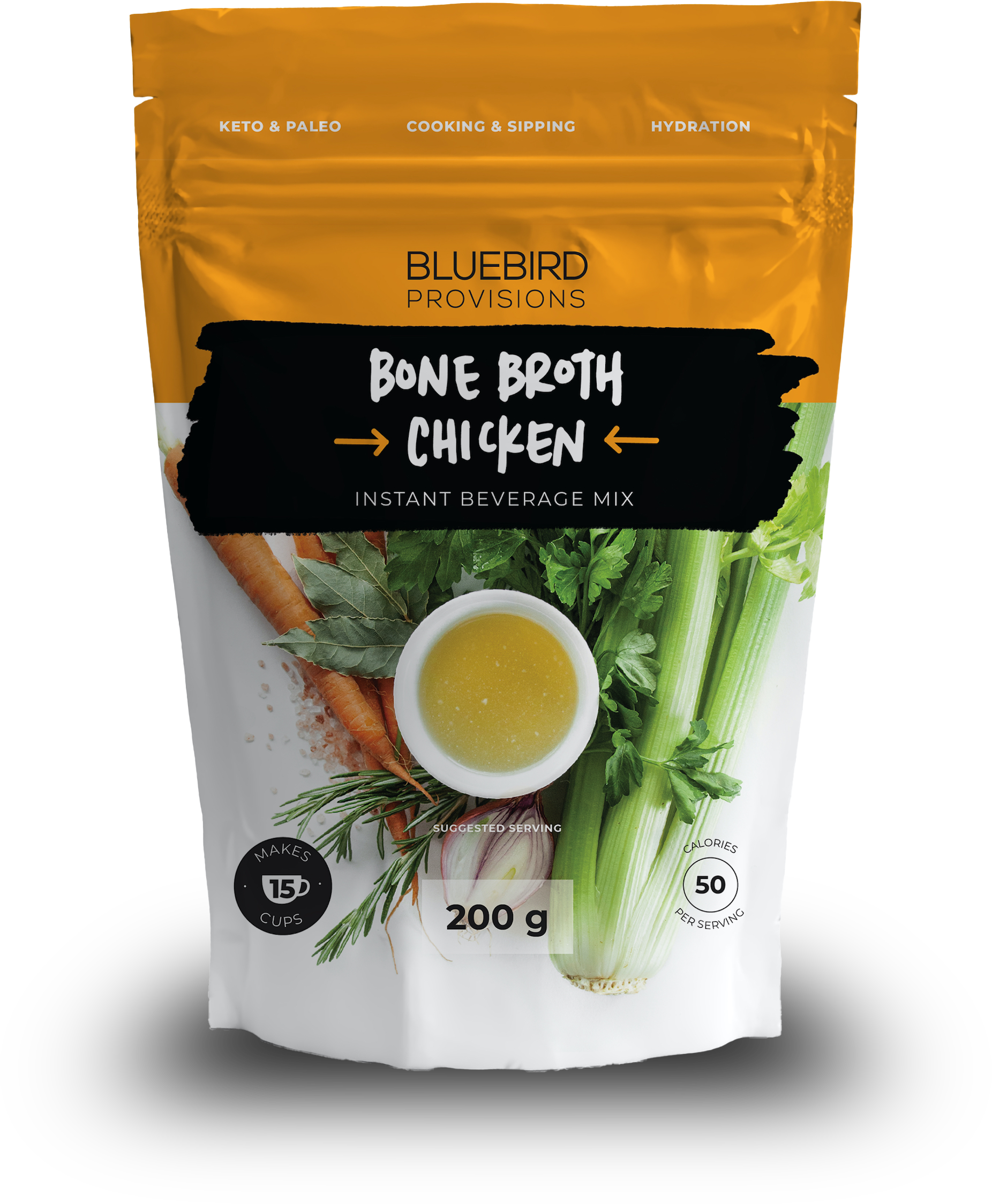
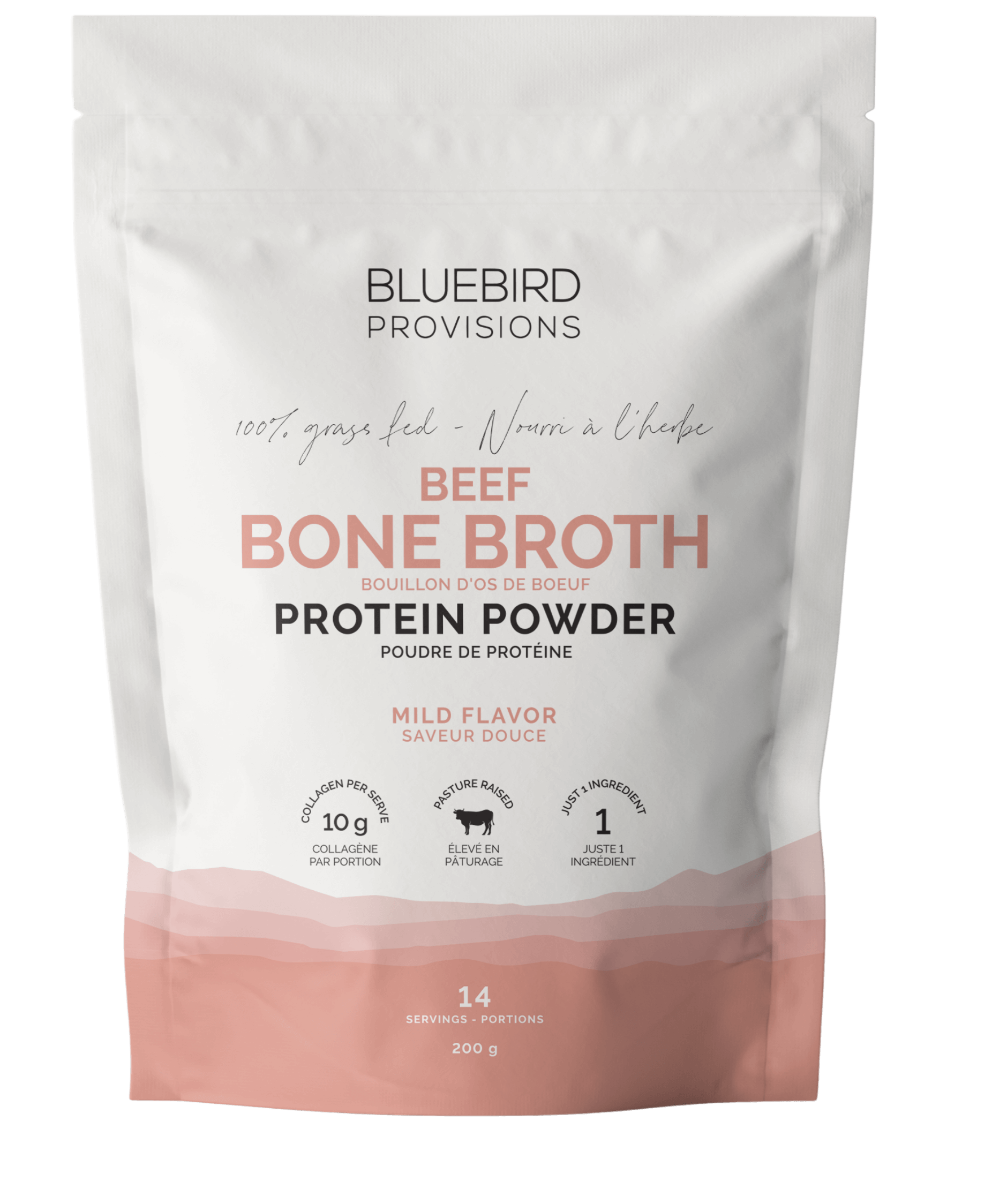

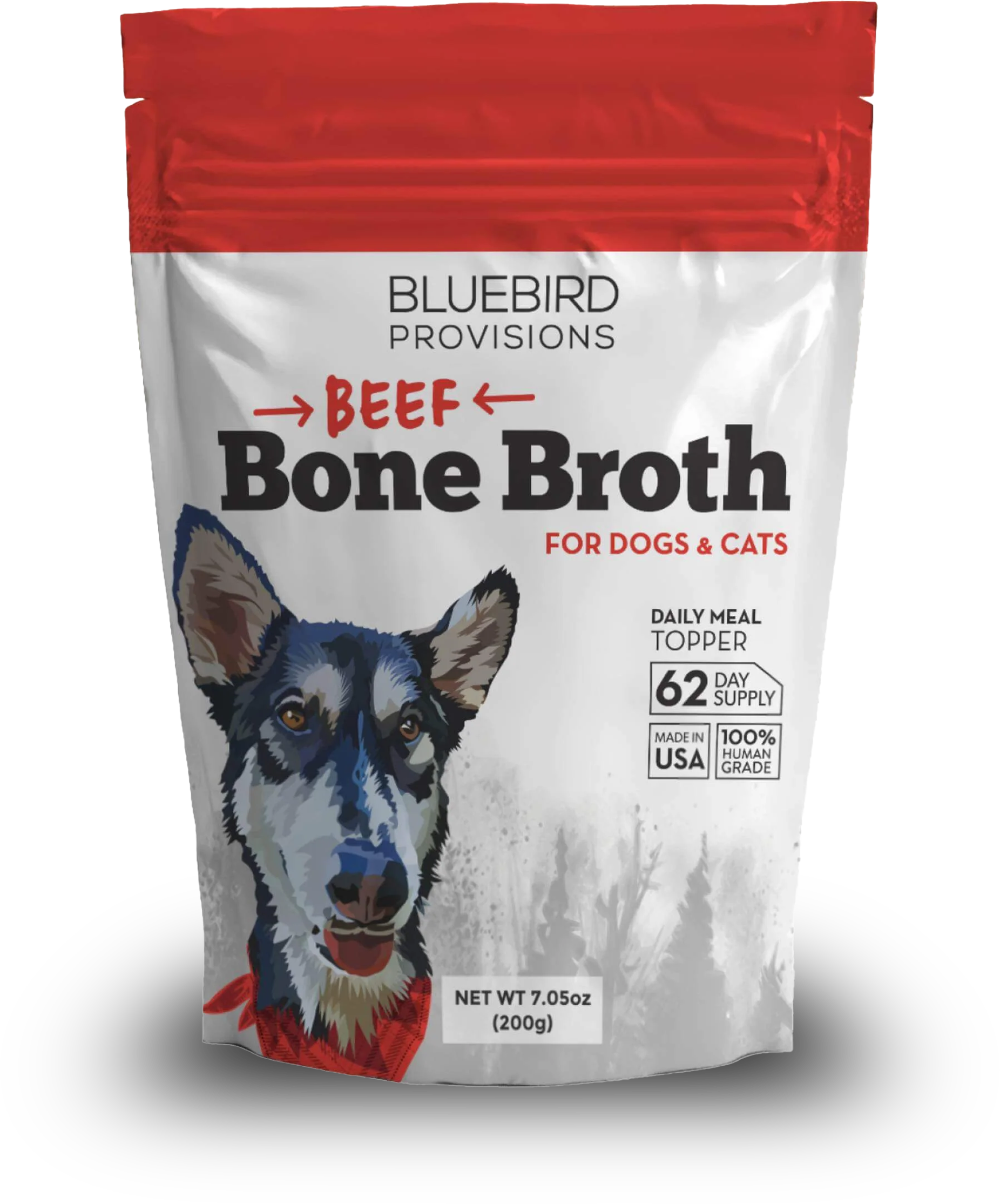
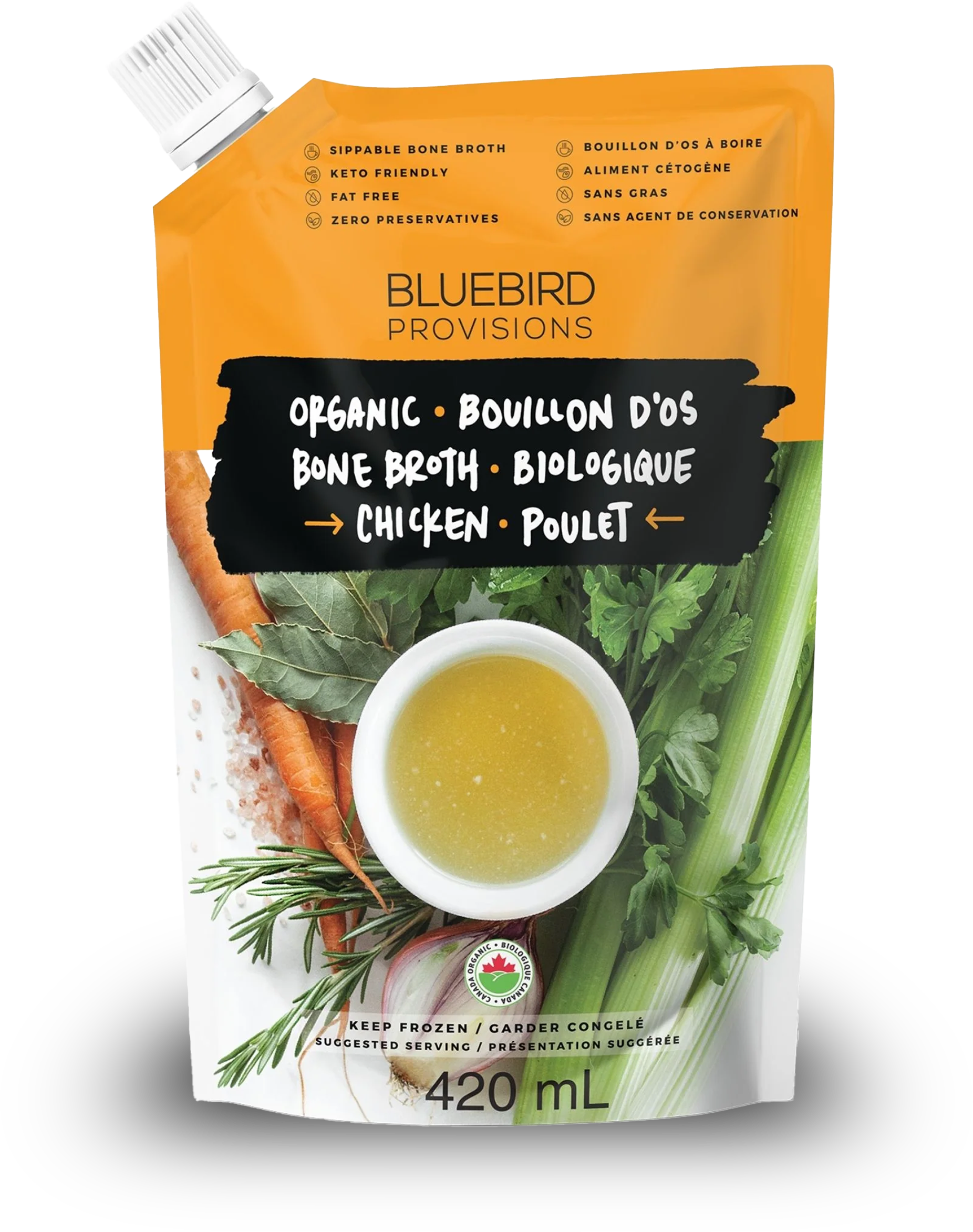
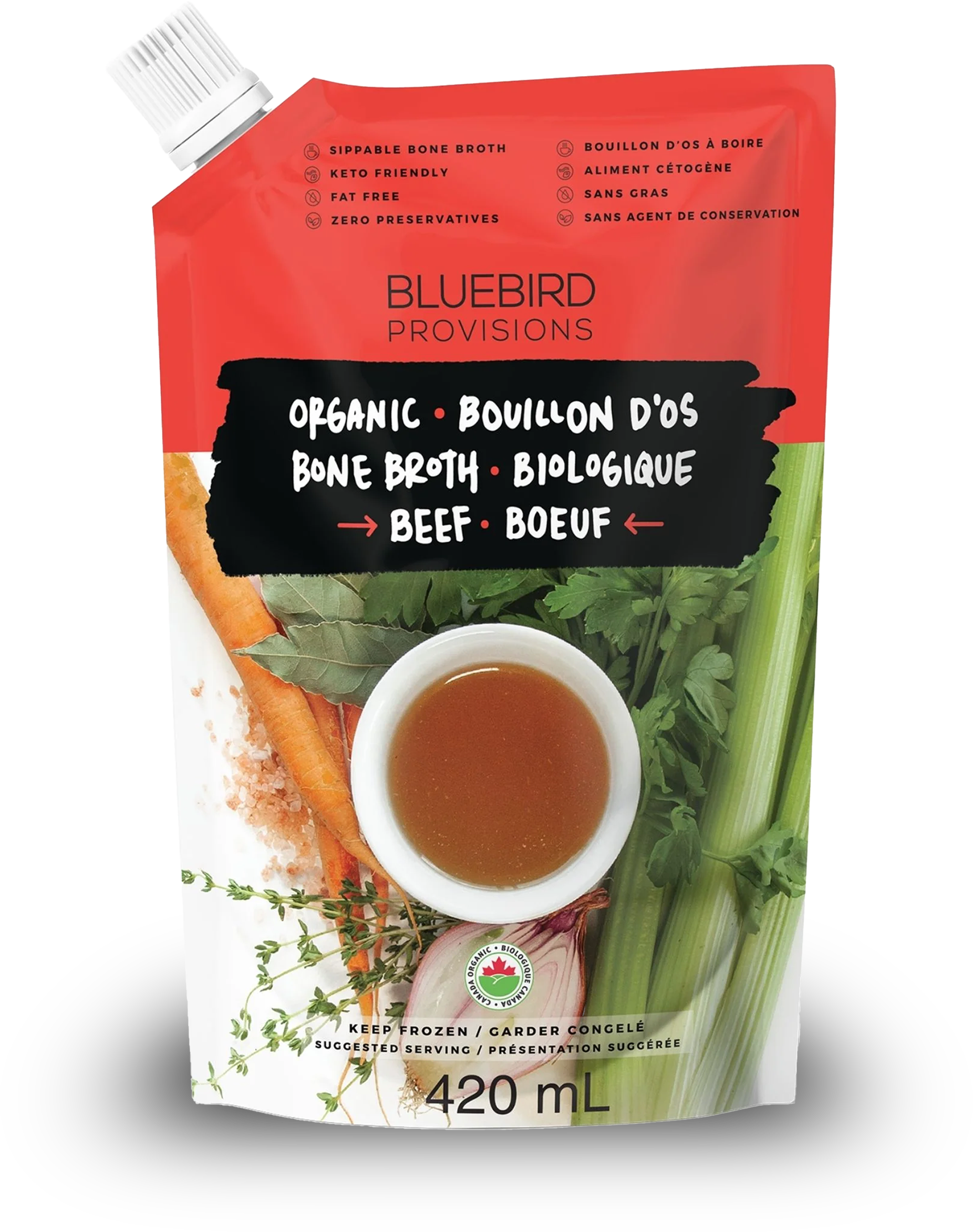

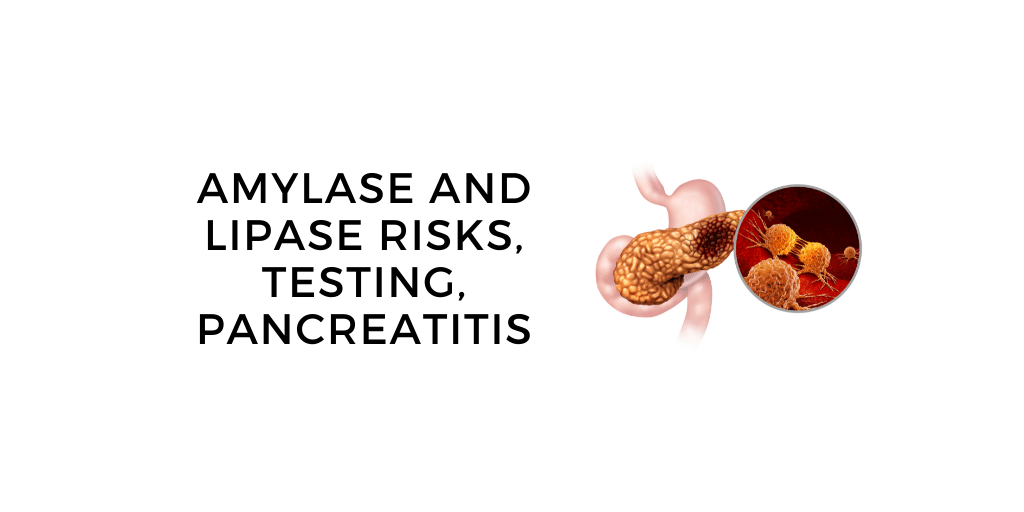
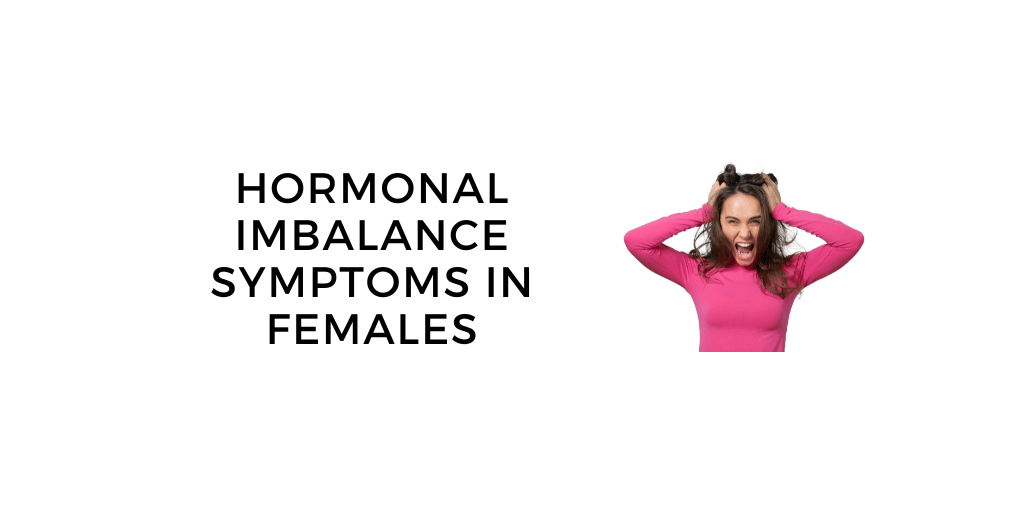
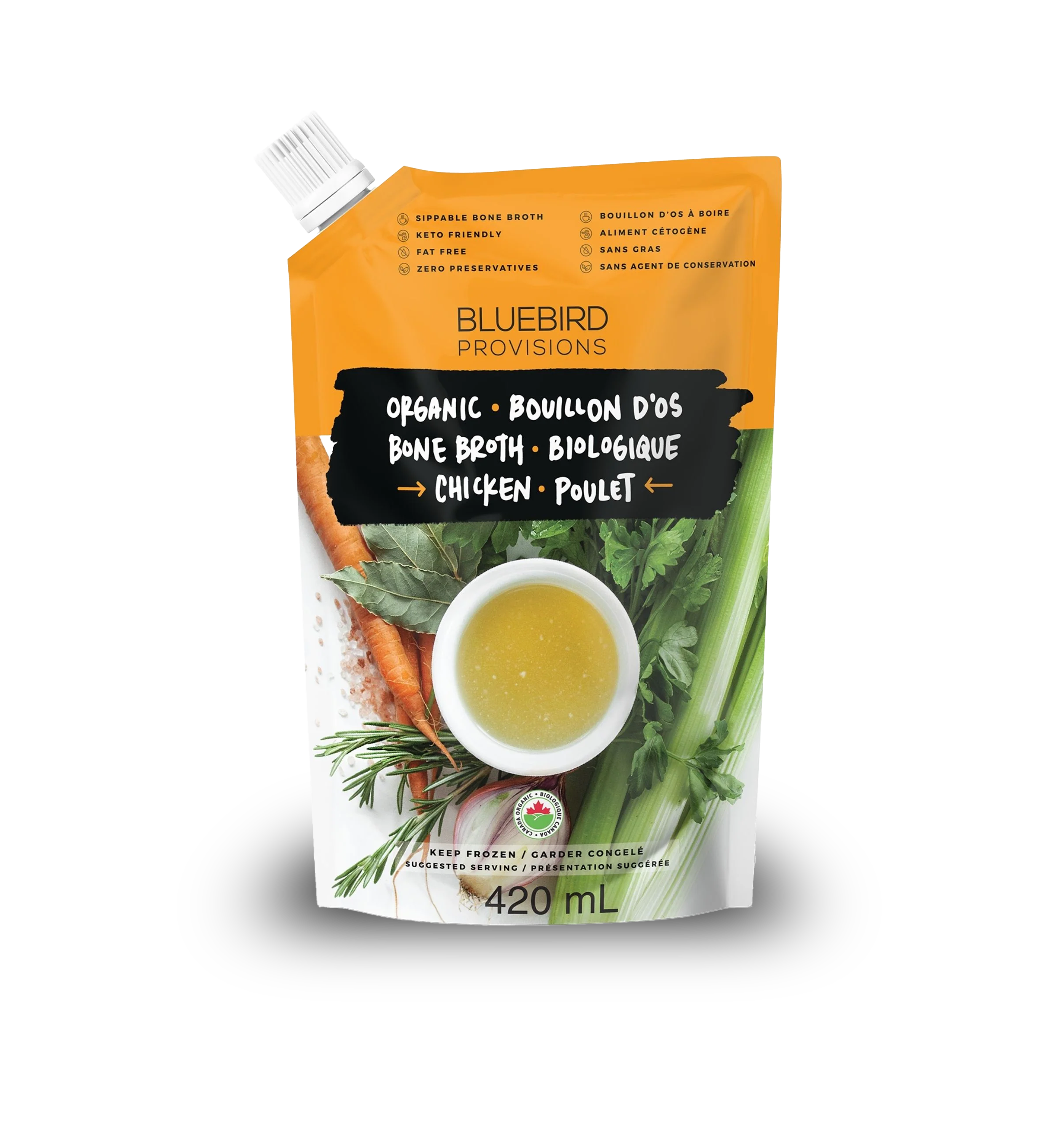
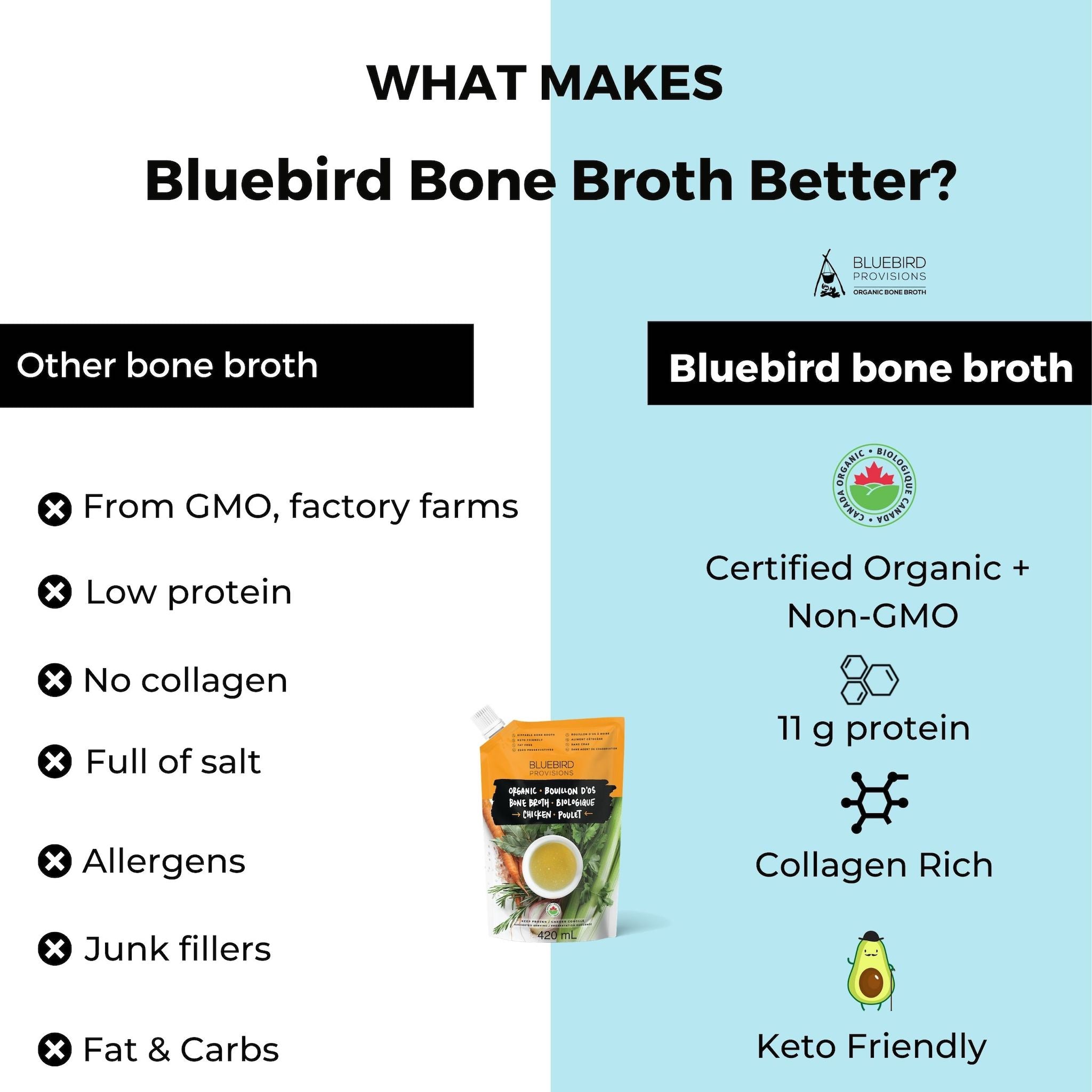
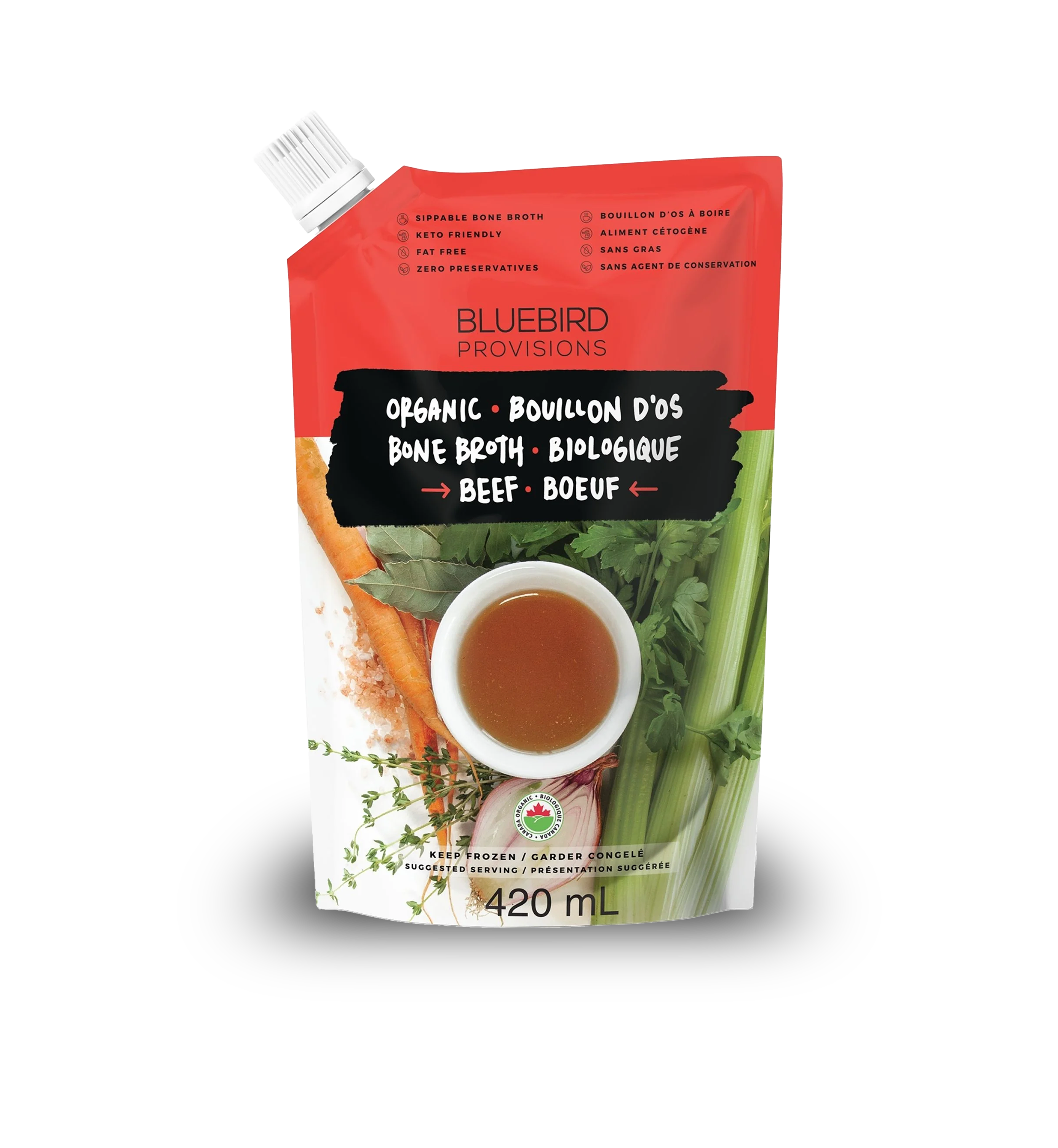
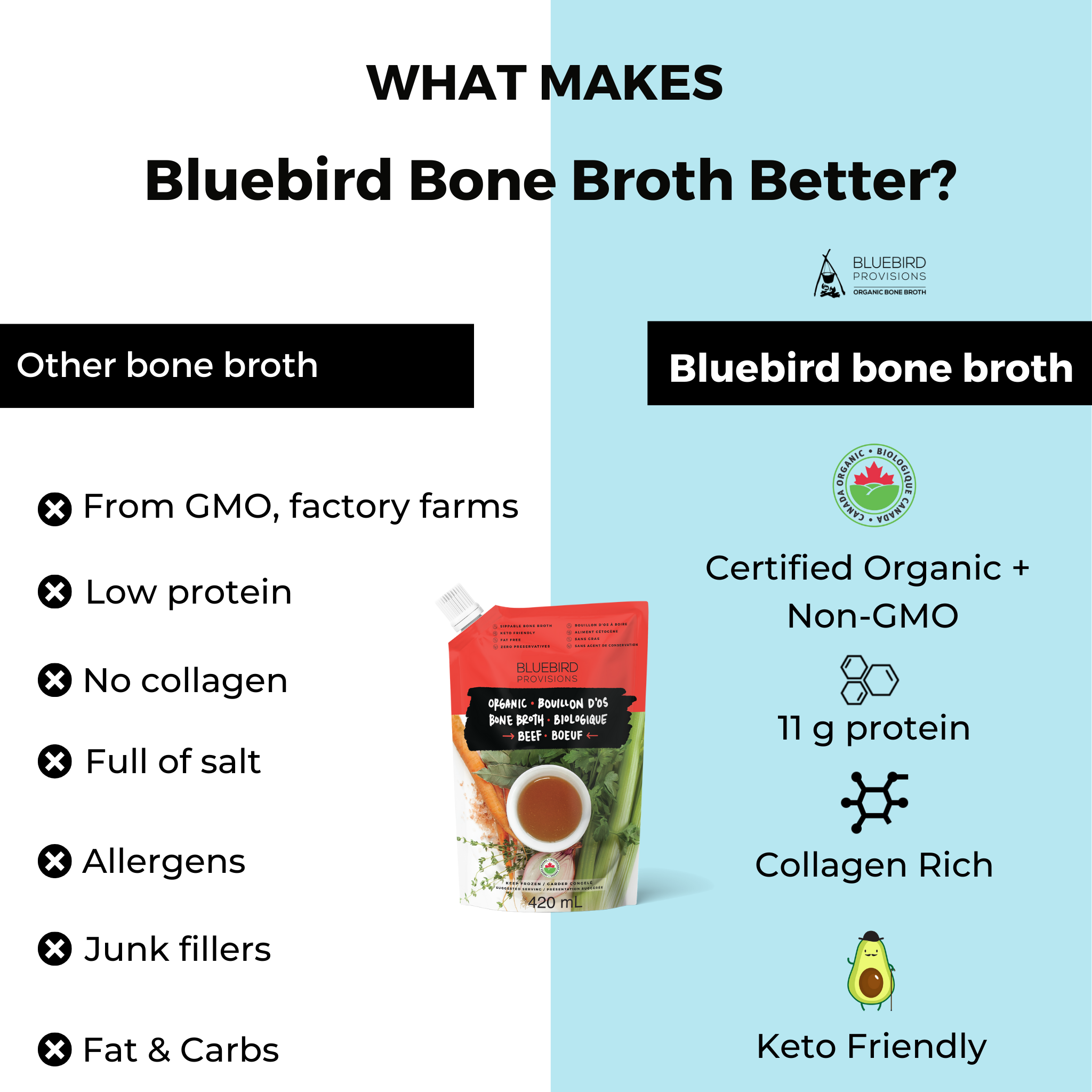
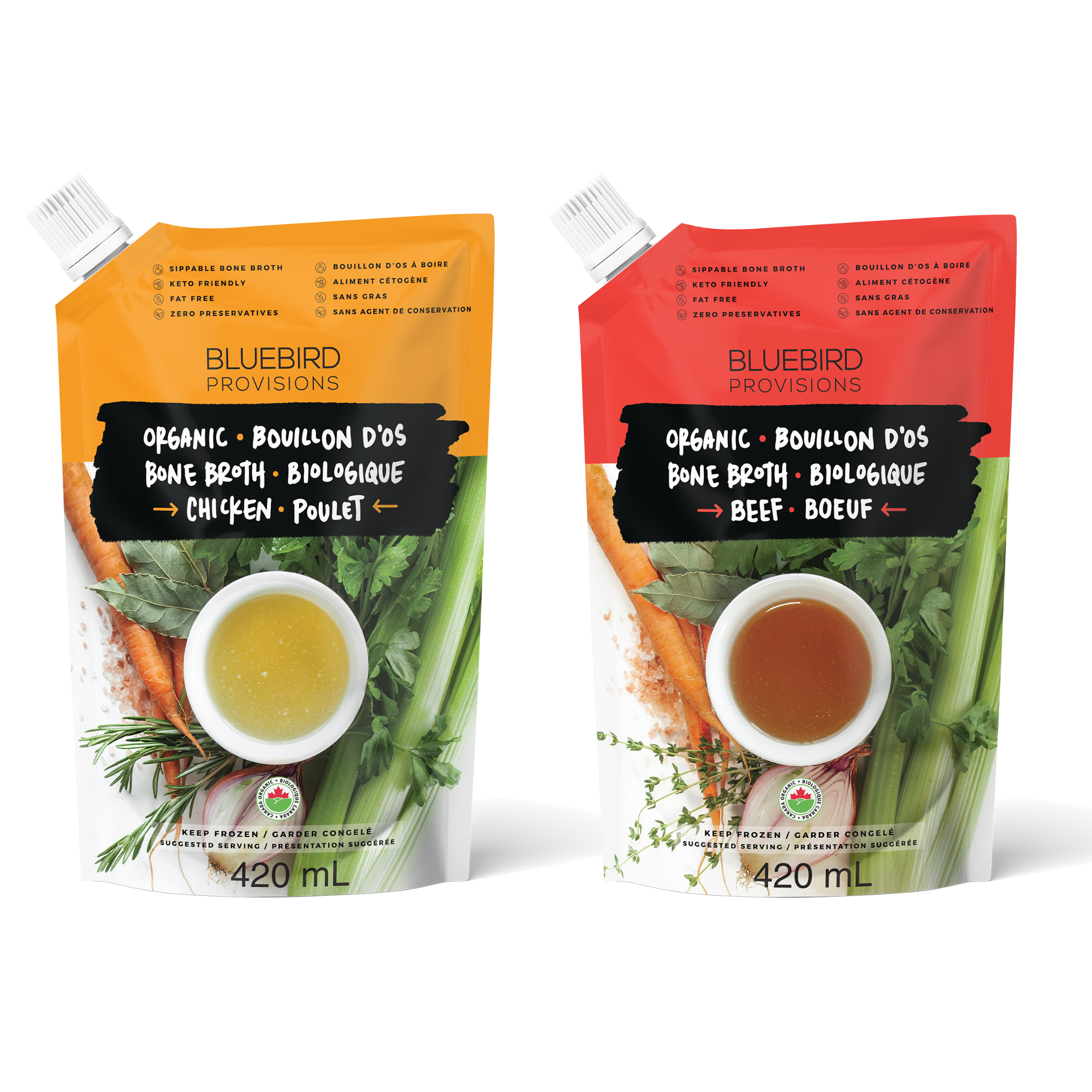

Leave a comment
This site is protected by hCaptcha and the hCaptcha Privacy Policy and Terms of Service apply.